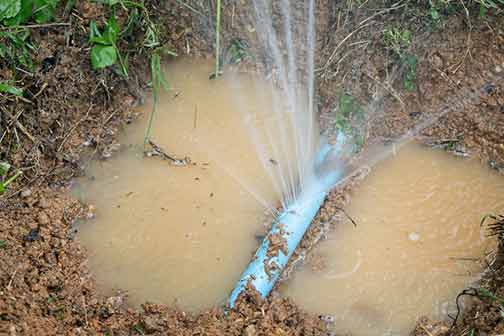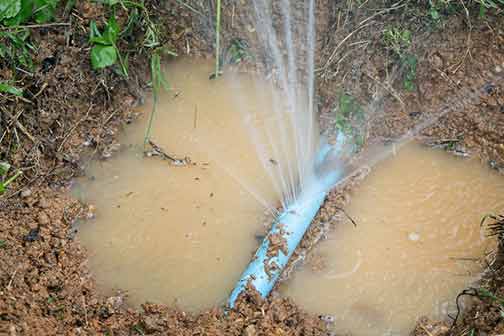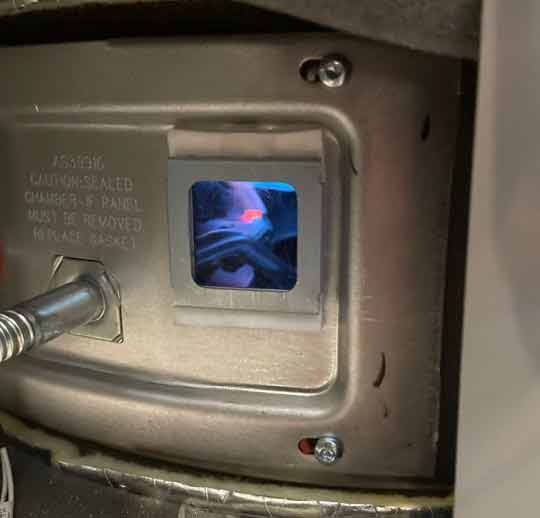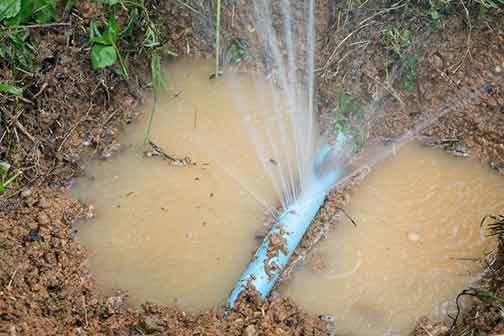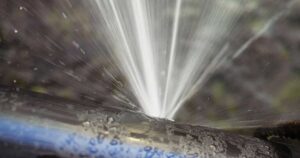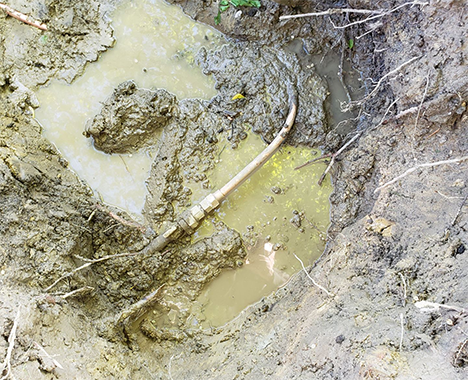Broken water lines can cause significant damage to your home and require immediate attention. Knowing what to do when you discover a broken water line can make all the difference in preventing additional damage to your property. In this article, we will cover emergency plumbing tips to guide you on the appropriate steps to take when dealing with a broken water line.
Shut off the main water valve
The first thing you should do when dealing with a damaged water line is to shut off the main water valve in your home. The main water valve controls the flow of water into your home. Shutting off the main water valve stops the water flow and prevents more water from entering your home.
Open all faucets to drain water
After you have shut off the main water valve, open all faucets to drain any water remaining in the pipes. This helps to minimize the amount of water damage as well as remove any excessive pressure from the pipes when the repair is ongoing. Additionally, you should flush all toilets and turn on outdoor faucets to drain any water in the system.
Locate the broken water line
If you are dealing with a broken water line, you need to locate the break. It is essential to pinpoint the exact location of the leak to prevent additional damage and speed up the repair process. Look for visible signs of damage, such as water puddles, water stains, and wet spots. Alternatively, you can also follow the water supply line to find the source of the leak.
Assess the damage
Assess the extent of damage caused by the damaged water line. Inspect the affected area for additional signs of damage, such as soaking or wet insulation. Wet insulation should be removed and replaced to prevent mold growth. Additionally, if the leak has affected electrical wiring, turn off the power to the affected area.
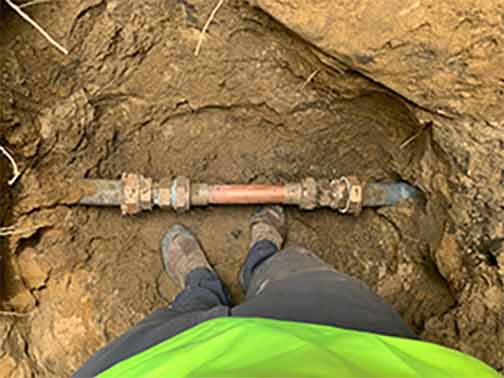
Professional plumbers have the right tools, expertise, and experience to diagnose the problem and provide the best solution.
Call a professional plumber
Contact a licensed and reputable professional plumber if you cannot fix the broken water line yourself. Professional plumbers have the right tools, expertise, and experience to diagnose the problem and provide the best solution. They can also help assess any other damage caused by the leak and offer recommendations on how to fix it.
Turn off the water heater
It is essential to turn off the water heater if there is a broken water line. Water heaters are designed to hold water, meaning that their tank may rupture due to excessive pressure. Turning off the water heater prevents it from blowing out and causing further damage.
Clean up standing water
Standing water can cause significant damage to your home and increase the risk of mold infestation. After shutting off the main water valve, open all faucets and drain any water from the pipes. Use towels and other absorbent materials to clean up any standing water. Also, use a wet/dry vacuum cleaner to extract water from carpets and floors.
Prevent future water line breaks
It is vital to take measures to prevent future water line breaks. Consider installing a water pressure regulator to prevent unnecessary pressure on the pipes. Regularly inspect your pipes for any signs of wear and tear or damage. Avoid flushing non-degradable materials, such as wipes and feminine hygiene products, down the toilet. These materials can clog your pipes and cause a backup.
In Conclusion
Dealing with a broken water line can be stressful and overwhelming. However, by following the emergency plumbing tips outlined in this article, you can minimize the damage and prevent future water line breaks. Remember to shut off the main water valve, locate and assess the damage, call a professional plumber, and clean up any standing water. Also, take measures to prevent future water line breaks, such as installing a water pressure regulator and avoiding flushing non-degradable materials down the toilet. If you require further assistance, contact a professional plumber in your area.
